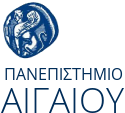The last chapter concludes on the research, after writing an overview of the causes and factors which affect the European prospect of F.Y.R. Macedonia. The role of E.U. is stressed since it is the main body of Europeanisation, liable for the potential successful or unsuccessful implementation of the terms and conditions set in order for the candidate country to approach the European model. The main conclusion is the partial E.U. success on the unilateral relations with F.Y.R. Macedonia, but also its partial failure on the bilateral and international relations with the rest of the countries involved in the problem, which is a result of the lacking political coherence within the structures of the European body.
The aim of this particular project is to present how the process of Europeanisation affected the Balkan countries. More specifically, it focuses on the study of Former Yugoslav Republic of Macedonia (F.Y.R. Macedonia). For this purpose, a methodological secondary literature review of the bibliographical sources is performed, which researches the origins and the evolution of the Macedonian nationalism. This was a sociological phenomenon which hindered – in the writer’s view – the European future of this specific country. The particular phenomenon led to the formation of a separate “Macedonian” national identity, which came into collision with the established socio-political and cultural elements of the broader Balkan area. So within the present research, the Macedonian nationalism is analysed under two basic perspectives; the internal social relations of F.Y.R. Macedonia between the two main social groups existing in the country (the Slav-Macedonians and the Albanians) and the external relations of F.Y.R. Macedonia with its neighboring countries. Also, the research reveals the political, social and cultural disputes within the country.Starting with a brief reference in the first chapter, the frame of the interest area is set, initially focusing on the Europeanisation itself, emphasizing the essence and the steps of the process. In that sense, the writer mentions the terms and conditions set by the European Union (E.U.) in order for the structural changes which occur in the candidate country for E.U. membership to be in tone with the European standards. The next subject area refers to the socio-political relations within F.Y.R. Macedonia since the emerge of the Macedonian nationalism, highlighting its basic formation mechanisms. More specifically, the writer refers to the problematic social relations within the country, but also to the constant claims of the neighboring countries, which arose after the need of F.Y.R. Macedonia for self-determination. The following three chapters refer thoroughly to the Macedonian nationalism facts, emphasizing on the events that took place in the last 20 years (from the independence of the country onwards). More specifically, the writer researches the problematic socio-political relations within the country, aiming at finding the causes which impede the country’s process towards fulfilling the conditions that would allow the E.U. membership. As for the diplomatic relations, the research refers mainly to the two Balkan countries (Greece and Bulgaria) which are heavily constrained by international forces (U.S.A. and E.U.), in order to recede from their initial view points and allow F.Y.R. Macedonia to become an E.U. member. This will consequently establish officially the “Macedonian” identity, which is still under controversy. The whole matter of the so called “Macedonian Question”, which is the basis of the Macedonian nationalism, revolves around the F.Y.R. Macedonian pursuit of misappropriating part of the socio-cultural heritage of its neighboring countries, so as to form a separate national “Macedonian” identity. This fact leads to a vicious cycle, since the affected neighboring countries, hinder even further the E.U. membership of F.Y.R. Macedonia.The last chapter concludes on the research, after writing an overview of the causes and factors which affect the European prospect of F.Y.R. Macedonia. The role of E.U. is stressed since it is the main body of Europeanisation, liable for the potential successful or unsuccessful implementation of the terms and conditions set in order for the candidate country to approach the European model. The main conclusion is the partial E.U. success on the unilateral relations with F.Y.R. Macedonia, but also its partial failure on the bilateral and international relations with the rest of the countries involved in the problem, which is a result of the lacking political coherence within the structures of the European body.

